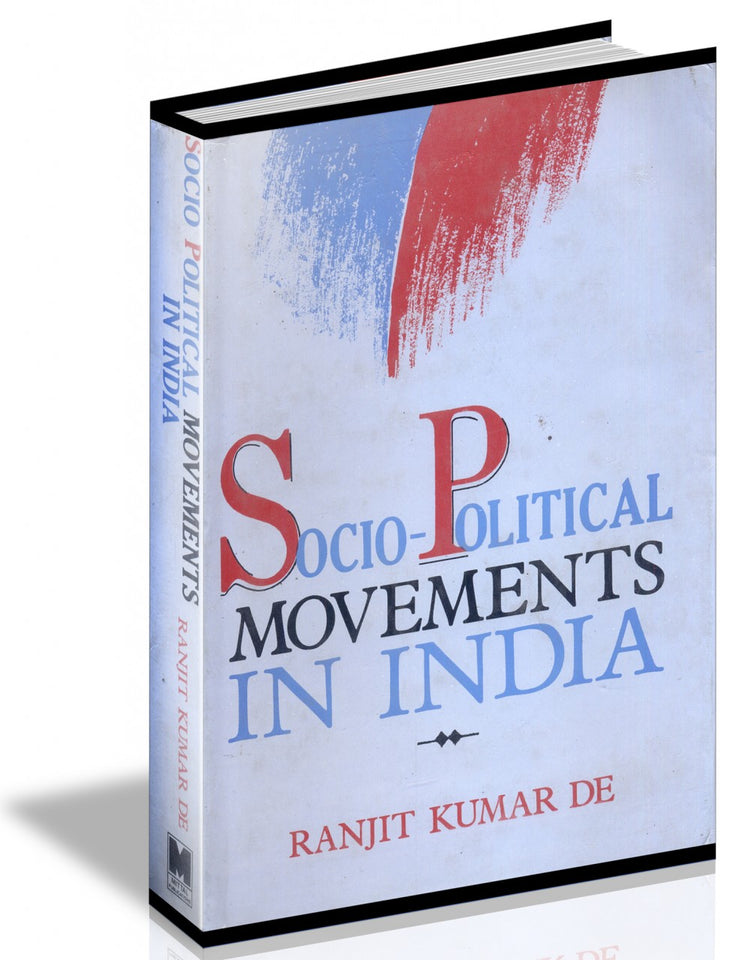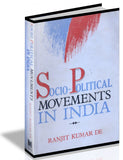Socio-Political Movement in India
Regular price
Rs. 595.00
The author, after ten years strenuous research at the grass root level, unravels the untold chapter of Tripura during the period from 1905 to 1952. This is a transitional phase and the book is a connected, comprehensive and illuminating analysis of the growth and development of socio-political movements and conflict within the matrix of pan-Indian historical tradition and change. It integrates the anti-feudalistic and anti-imperialistic struggles by examining their economic roots. It is an analytical, interpretative and comparative study which takes into account the important historical interpretations and some of their models for their proper placement. There are a number of studies which strives to unlock the transformation of one segment or other of princely Tripura's revenue, administrative, political history or British relation, tribal uprisings. But there is not a single work to portray the social conflict and political unrest in Tripura based on research materials in this transitional period. This book is, therefore, the fulfilment of that systematic in-depth study. The socio-political movements in Tripura were very much influenced by the political barometer of the neighbouring undivided Bengal. The book introduced Tripura to the outside world with its peculiar nature of relation with the British, demographic revolution and tribal situation. The influence of Bengal since the anti-partition agitation of 1905 is discernible. Three dimensions of national movements, of 1919-22, 1930-34, 1942-53 served as a turning point in the lives of many people in the state. Besides the effects of the commercial depression of 1930s, economic effects of the two world was as roots of political unrest are analysed. The book also challenges the notion under estimating the scope and significance of the Reang unrest of 1943. The emergence and activities of the socio-political parties are traced and examined in their proper perspective. Attempt is also may to establish the fact that the policy of armed confrontation can be substituted by a constitutional judges of real uninterrupted historical processes. The author has collected all possible sources of information and exploited a vast mass of primary and secondary data. Annual administration reports, gazetteers, memorandum and statistics of 1930-31, 1936-37, contemporary local and national newspapers, handbills, leaflets, pamphlets, popular tales, fold-lores, original sources in private possession etc. are consulted and utilized. Sometimes interviews are conducted to verify the official records. The author has made an enormous use of published and unpublished records of \Tripura secretariat Archival Record Room besides consulting records available in the National Archives of India and West Bengal State Archives both at college Street and Writers’ Building. This book represents a comprehensive analysis of tax Performance of West Bengal in comparison to other major states in the country over about three decades since 1960-61. In the face of growing revenue needs, increasing tax activity in the states is of utmost importance. Since legislative and administrative decisions are jointly responsible for a tax to grow over time, those are examined in details incase of each important individual tax item in the states. Moreover, considering the fact that growth of tax revenue in a state primarily reflects the state of its economy, different aspects of economic development in the states are also widely discussed. Finally, some important policy prescriptions to promote the further growth of taxes are made.
Dr. Ranjit Kumar De (b. 1949) took his Honours degree in History from the Narendrapur Ramkrishna Mission Residential College, Calcutta. He acquired his M.A. Degree from Jadavpur University and B.Ed. from Calcutta University. He obtained his Ph.D. from Tripura University. He taught at Belmia College as well as Bir Bikram Evening College, Government of Tripura. He has also taught at the History Department, Tripura University both as Guest Lecturer and Reader. He is currently Reader, History Department, Assam University (Central University), Silchar. He is a Life Member of the North-East India History Association (an academic body). Specialising in the Modern Indian History and the History and Culture of North-East India in general and Tripura in particular, he has contributed and presented a large number of articles in various academic forums which were published subsequently in reputed journals.
Guaranteed Safe Checkout





